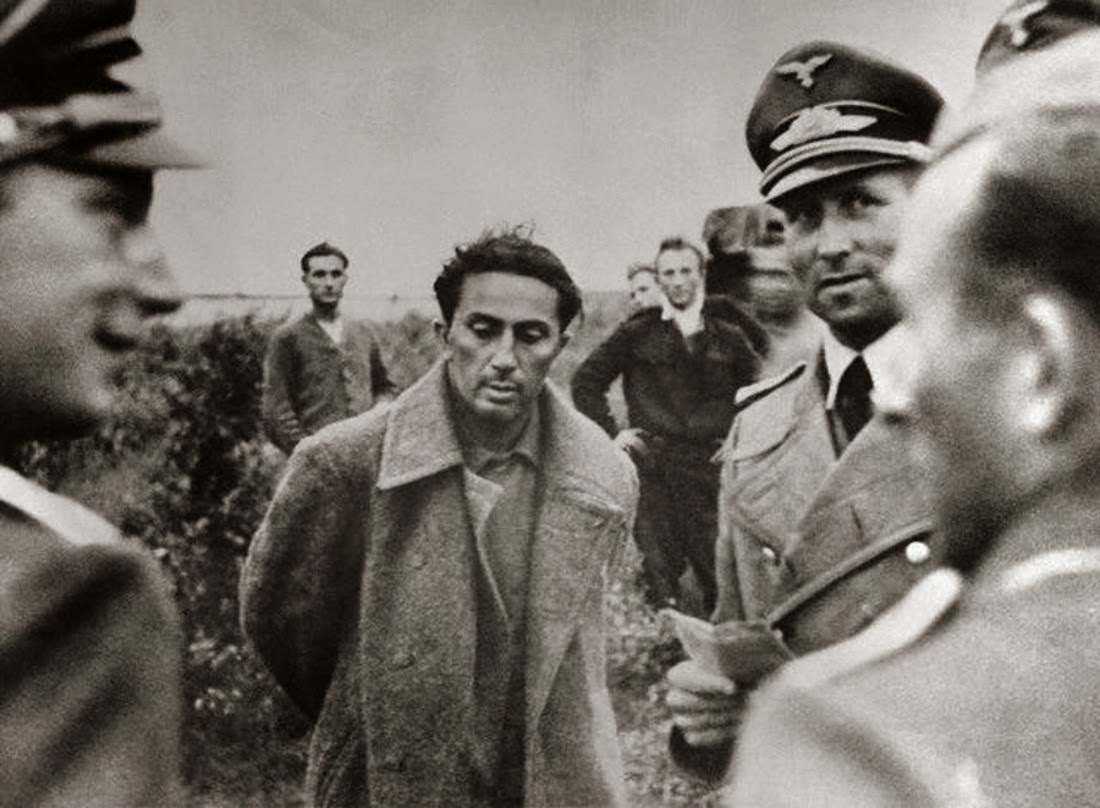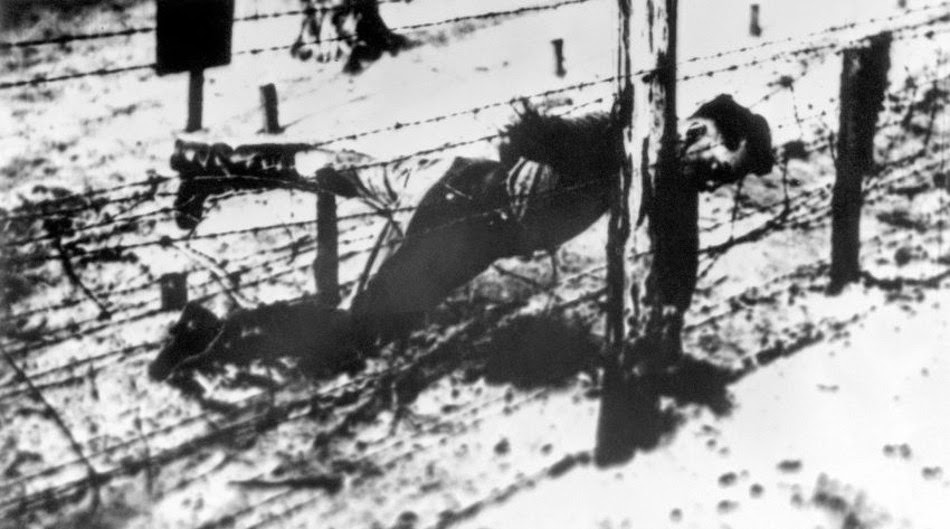Photographs show Stalin's son Yakov Dzhugashvili captured by the Germans, 1941

Stalin's eldest son Yakov Dzhugashvili served in the Red Army during World War II, and was captured or surrendered in the early stages of the German invasion of the USSR. There are still many conflicting legends about the death of Yakov Dzhugashvili, as are all important events in his life.
Yakov, born in 1907, was the son of Stalin's first wife, Ekaterina Svanidze. His mother died a few months later, and he was raised by his maternal uncle, who urged him to pursue higher education.
He traveled to Moscow, learned Russian (his native language was Georgian), and eventually graduated from a military academy. Yakov and his father Stalin never lived together. Stalin reportedly once referred to Yakov as a "mere cobbler".
Their relationship broke up in 1925 when Yakov moved in with the daughter of an Orthodox priest, Zoya Gunina. However, an angry Stalin refused to accept the young woman, who had previously been Yakov's classmate.
As a result of the enduring conflicts, the deeply hurt young man attempted suicide. The bullet hit his lungs but he missed his heart. This prompted the dictator to make a sarcastic remark: "You couldn't even do it properly".
Dzhugashvili was captured on 16 July 1941 during the Battle of Smolensk. It is not clear whether Yakov was captured or surrendered. In February 2013 Der Spiegel printed evidence that indicated Yaakov had surrendered.
A letter by the brigade commissar of Dzhugashvili to the political director of the Red Army, quoted by Spiegel, states that after the Germans bombed Dzhugashvili's battery, he and another soldier initially dressed in civilian clothes and fled, but Then at some point, Dzhugashvili stopped behind, saying that he wanted to stay and rest.

From other sources, it appears that the retreating Yakov Dzhugashvili was handed over to the Germans by his father's unhappy subjects, the Russian Muziks, who hated the Kolkhoz system and Soviet power in general.
In the first hours after the capture, the terrified young man got rid of his officer's insignia and hid among the prisoners of war. Unfortunately for him, he was recognized by one of his former teammates, who immediately turned him in.
Soon after, the Abwehr's most trained Russian experts interrogated the bearded artillery officer. All his words were carefully spelled out, although only a part of these documents have been made public.
In any case, from the records of the first interrogation, we can conclude that Yakov Dzhugashvili did not humiliate himself before the Germans.
However, after some time, the Cornered Artillery Officer inevitably became more open. He had a very bad opinion of his own division and even other units of the Red Army, which were insufficiently prepared for war. He told his captives that the Red commanders behaved inappropriately in peacetime and often even during war.
He said that the rich peasants, the kulaks, who had previously been "defenders of tsarism and the bourgeoisie", dominated the Soviet system.
Answering questions about her family revealed how loose her relationship was with her father. He gave the year of the death of his stepmother, Nadezhda Alliluyeva, as 1934 instead of 1932, nor could he say how old his younger brother Vasily was.

Stalin learned about the capture of his son
When he received a package from the Germans that included a picture of his son. "Fool - he couldn't even shoot himself!" An angry Stalin complained to his younger son Vasily.
Rumor had it that Stalin blamed Yakov for "surrendering like a coward" to the enemy. The Nazi German propaganda machine immediately filled the Soviet trenches with leaflets. These stated that with the exception of "commissars and Jews", he promised good treatment to those Red soldiers and commanders who surrendered unarmed.
Several leaflets contained a picture of Yakov Dzhugashvili, smiling at the Wehrmacht officers around him. Printed on the back of one of the propaganda publications was a copy he wrote to his father. She was deported from him soon after his capture by the Germans, and sent through diplomatic channels to his addressee:
"Dear Father! I have been taken prisoner. I am in good health. I will soon be sent to a camp for the authorities in Germany. I am being treated well. I wish God health. To all Hello. Yasha".
Later in the war the Germans offered to trade him for a German officer who had been held prisoner, some say by Field Marshal Friedrich von Paulus, who had recently surrendered at Stalingrad, but Stalin refused such Denied the deal, denying that they had a son who was taken away. captive. (A story later circulated that Stalin alleged that he would not trade a field marshal for an ordinary soldier.)
In the following months, the German secret services could receive little new information from Stalin's eldest son, who was temporarily preserved in a villa in Berlin. However, Joseph Goebbels and his colleagues initially hoped that they could create a puppet of him and include him in Russian-language radio propaganda broadcasts.
When his plan failed, after spending time in several temporary officers' camps, Yaakov Dzhugashvili, whose nerves had clearly deteriorated by that time, was taken to the Sachsenhausen concentration camp on Himmler's orders.
It was there that Stalin's eldest son was shot dead late in the evening of April 14, 1943, a story that remains unclear to this day. According to a widespread version, the prisoner began to leave the camp unexpectedly and intentionally, or accidentally, touched the barbed wire fence. Then a guard opened fire on him.
New declassified files show that Dzhugashvili was shot by a guard for refusing to obey orders. When Dzhugashvili was walking around the camp, he was ordered to return to the barracks under threat of being shot. Dzhugashvili refused and shouted, "Shoot!" The guard shot him in the head.

It can be assumed that he committed suicide: from his youth he had suicidal tendencies. In any case, it was becoming increasingly difficult for him to cope with the pressures put on him by the visitors coming from Berlin with cameras and tape records.
He even got into fights with his fellow English prisoners, who misbehaved with him and physically hurt him on several occasions. Apparently, he was involved in one such confrontation on the day he was killed. Either way, Stalin saw this as a more honorable death, and Stalin's attitude toward his son softened a bit.

No comments: